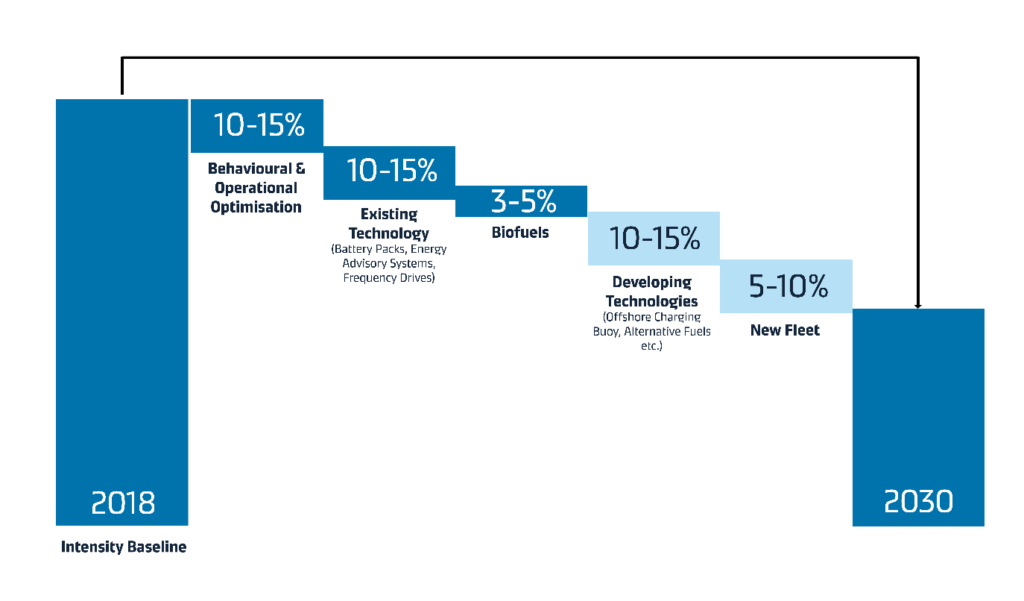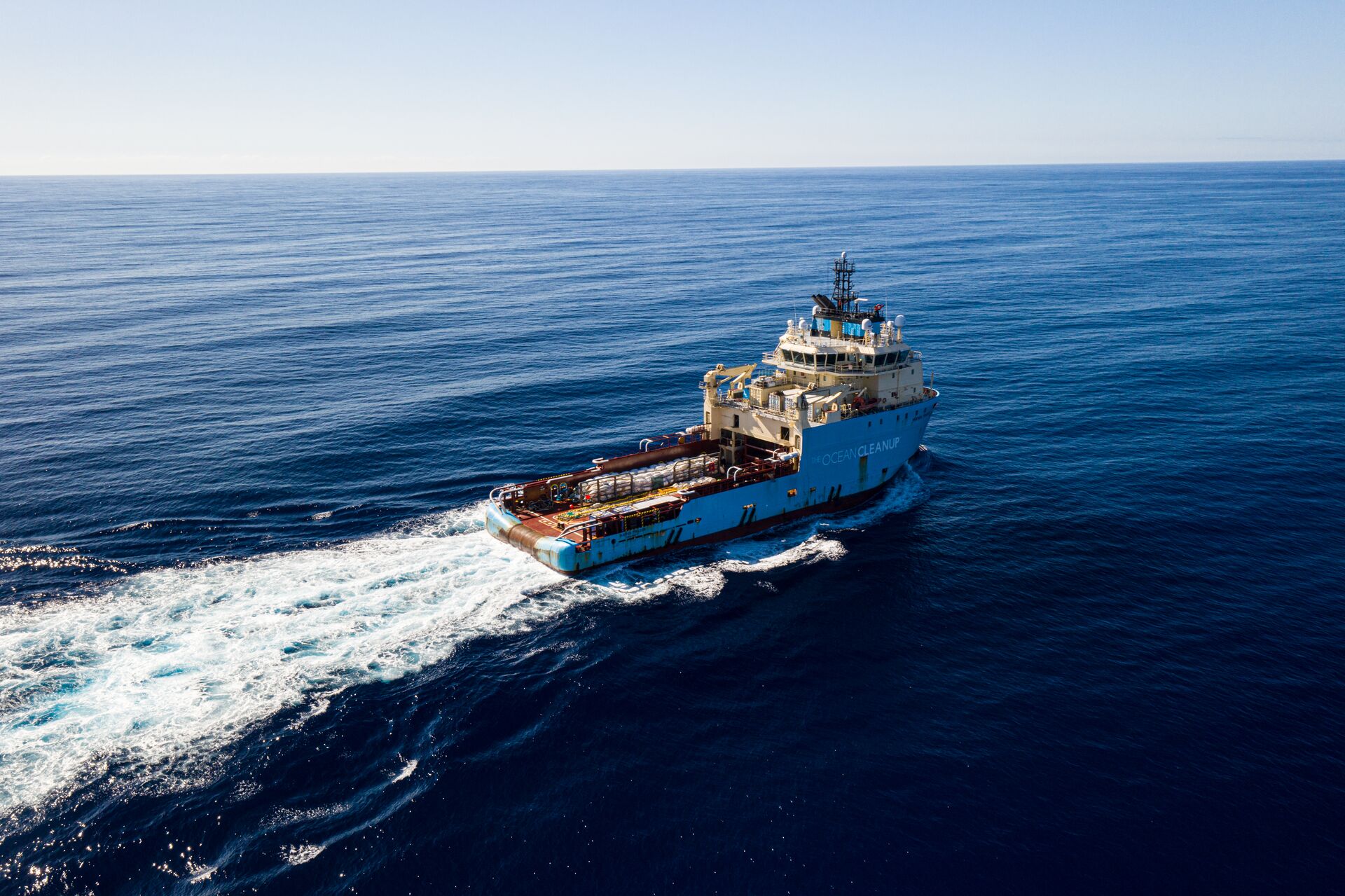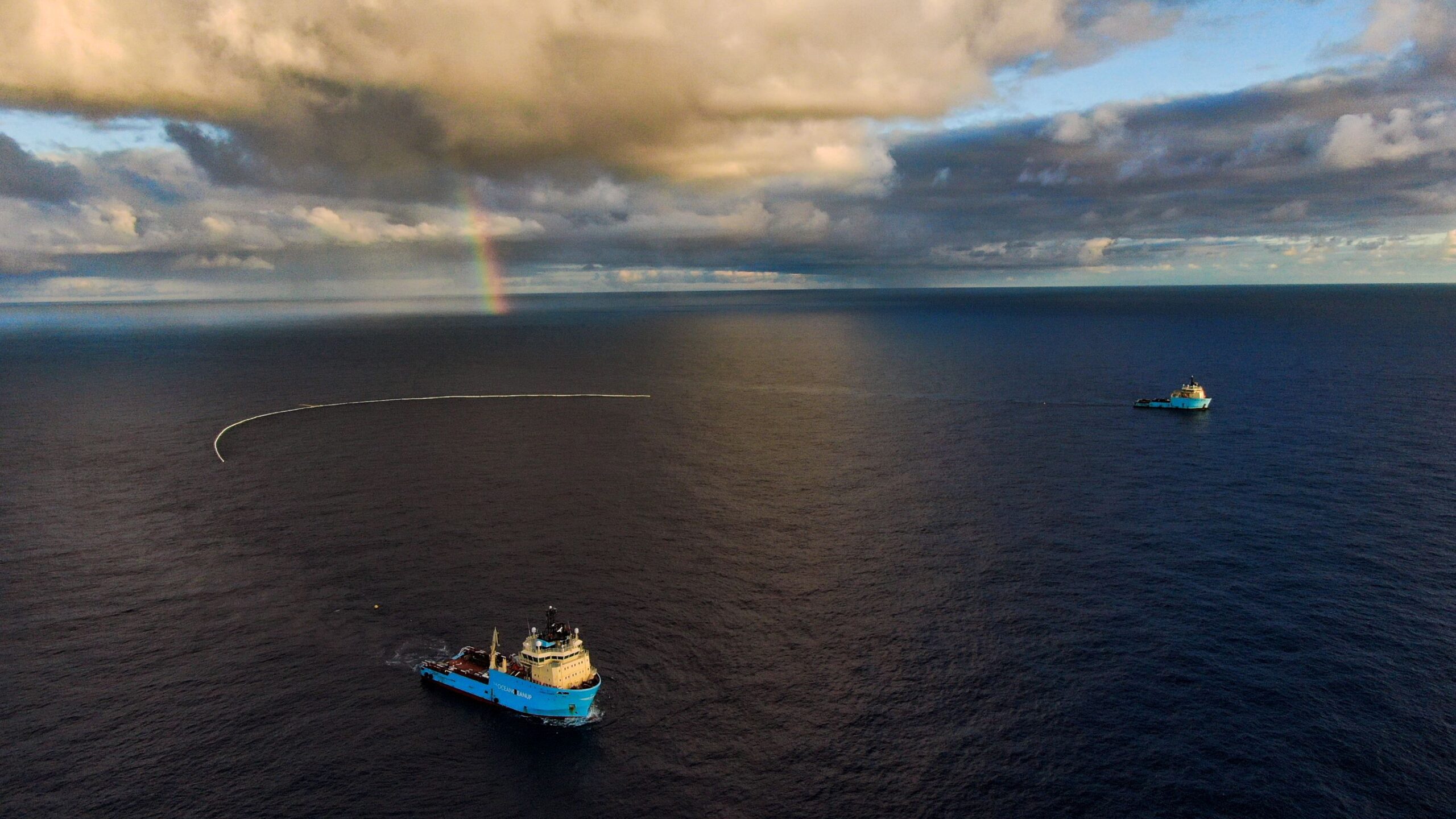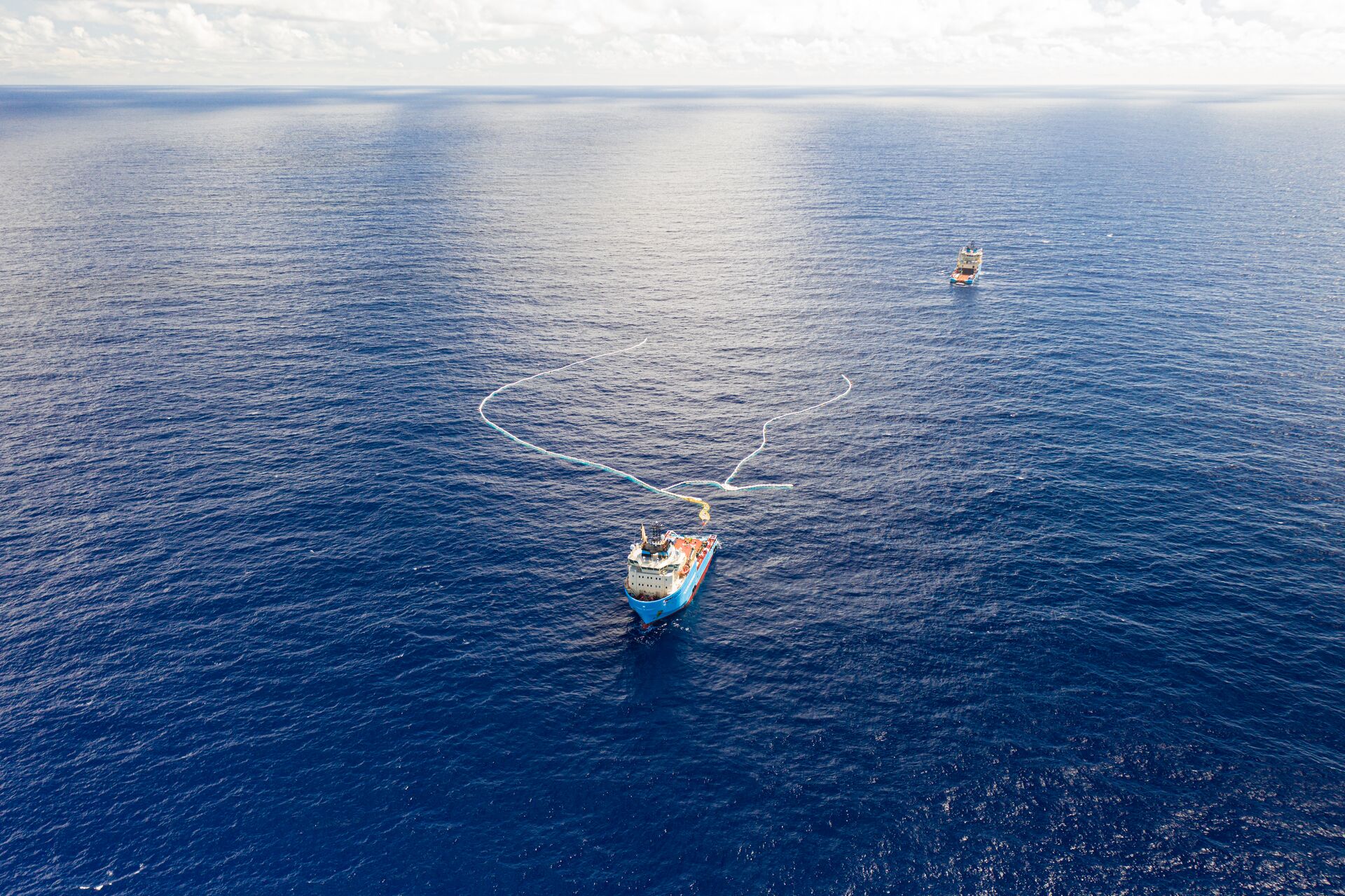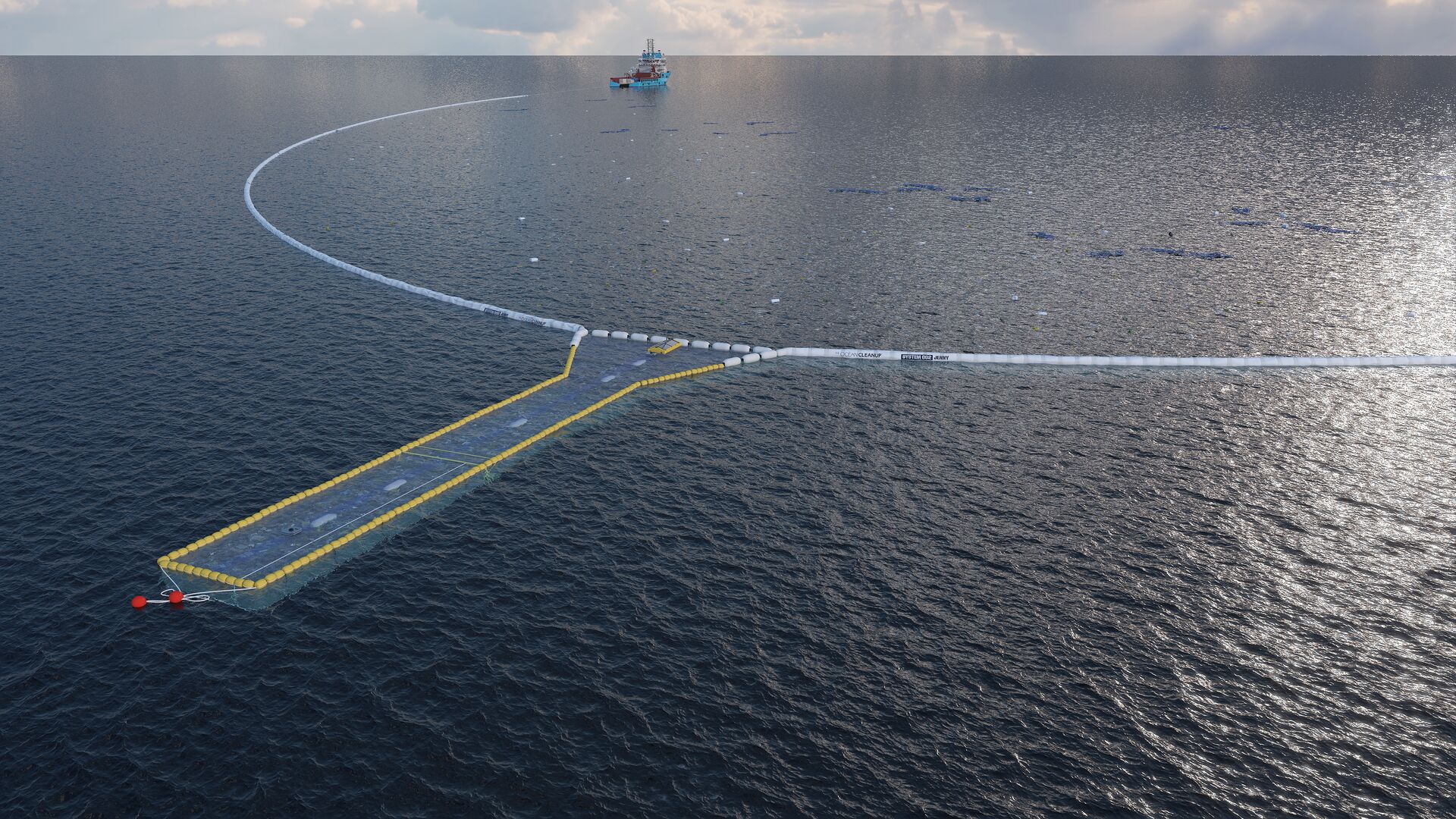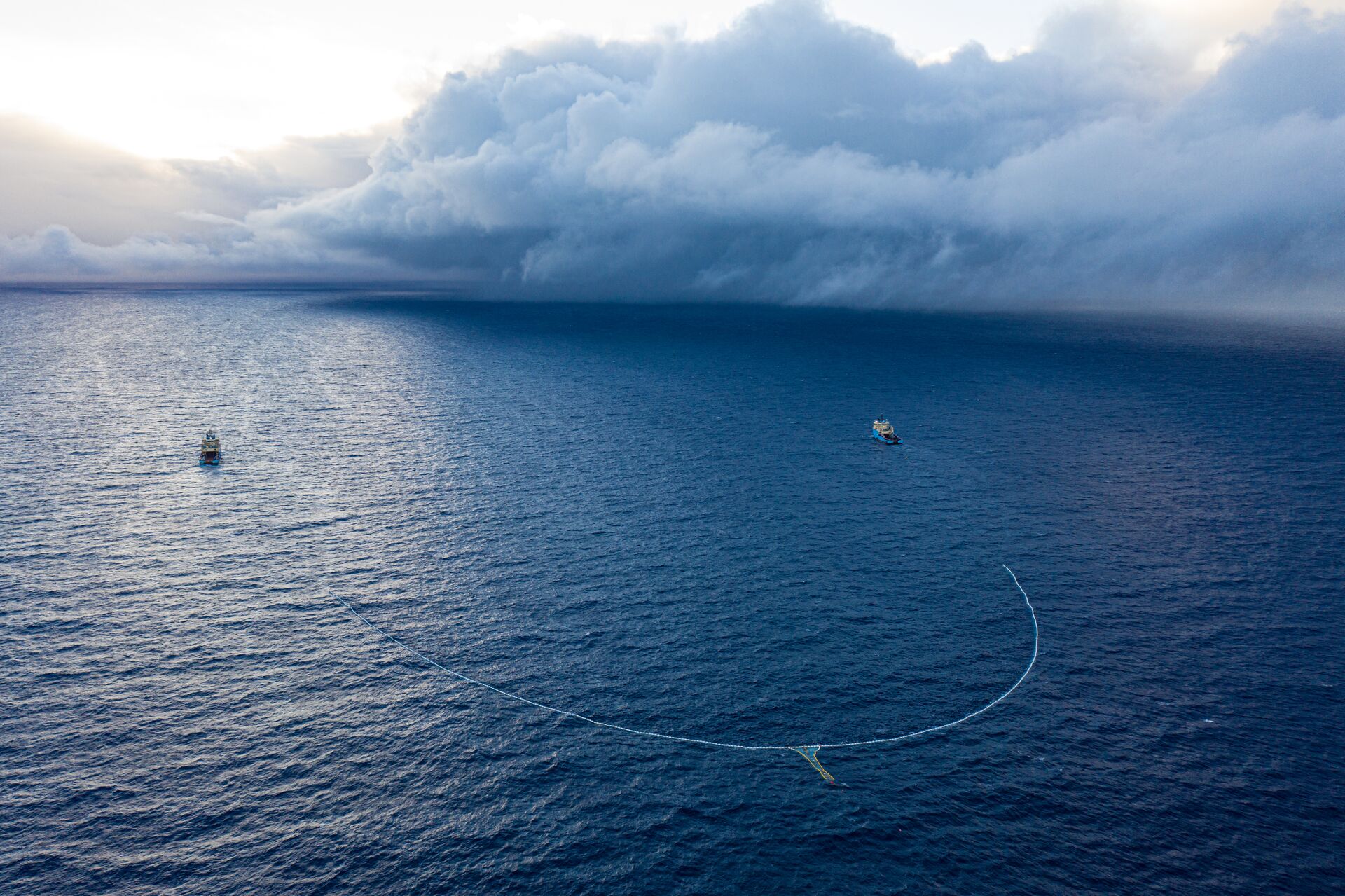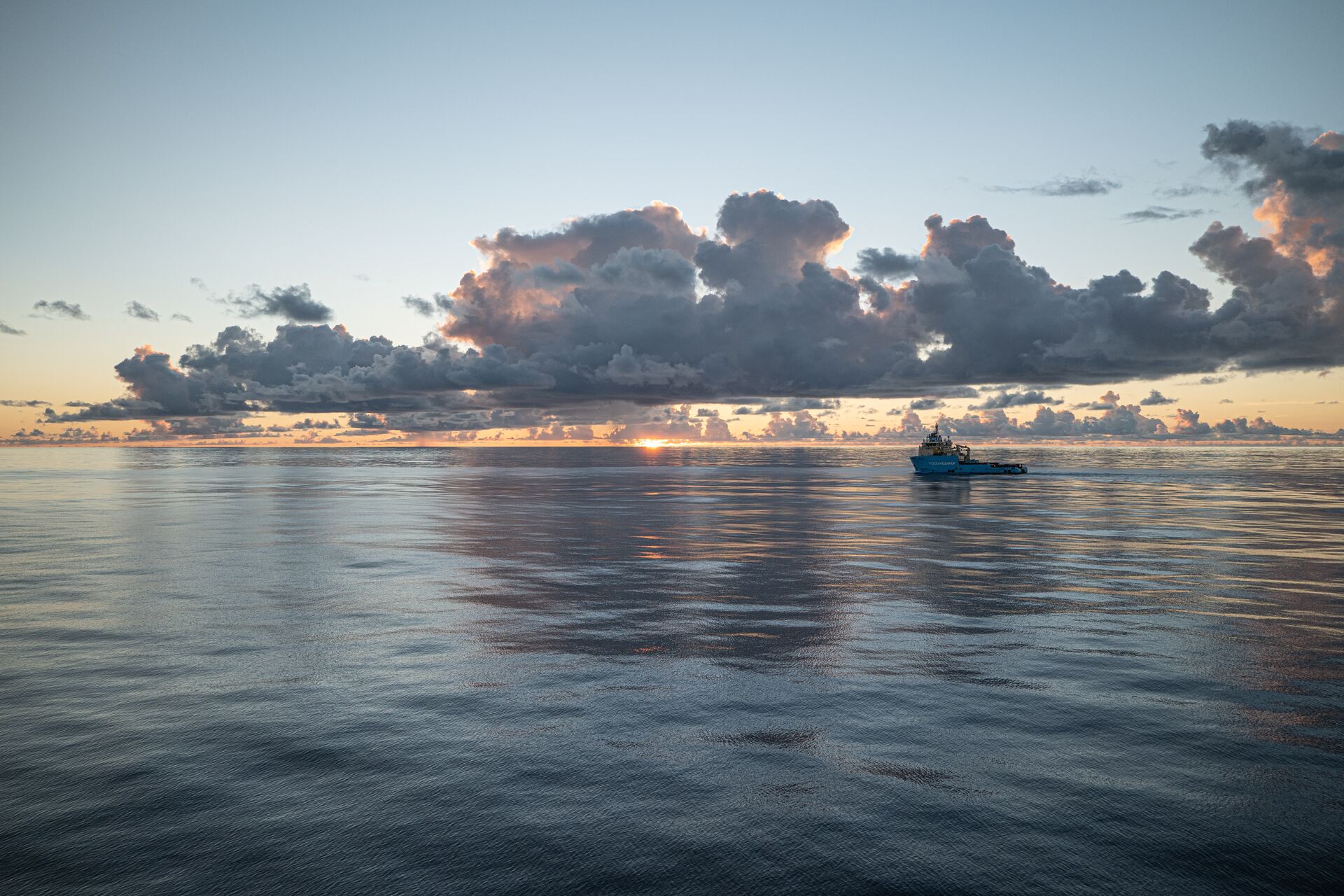Maersk Tender completes a successful trial in partnership with The Ocean Cleanup, blending biofuel into the marine gasoil to reduce CO2 emissions during her recent charter in the Pacific.
Biofuel Collaboration
In May 2021, Maersk Supply Service decided together with The Ocean Cleanup to run a trial programme, in which they would blend biofuel into the marine gasoil on one of the vessels. Maersk Tender was selected as the guinea pig vessel, on a plastic-collecting charter operating out of Victoria starting in July 2021, also with The Ocean Cleanup.
“At The Ocean Cleanup, we aim to have carbon-neutral operations, but we realise there is still some work to do to get there. This is why we’re pleased to see and be a part of Maersk’s efforts to test and transition to alternative fuel options. Maersk has been vital in our work to clean the oceans, and we look forward to continuing our collaboration while having a more positive impact on the environment.” – Henk van Dalen, Ocean Director at The Ocean Cleanup
Maersk Supply Service and The Ocean Cleanup partnered to purchase 90MT HVO biofuel (Hydrotreated Vegetable Oil), with the mixing rate set at 15% HVO and 85% Low Sulfur MGO (Marine Gas Oil). At this rate and with current fuel efficiency, the HVO was able to cover 2 separate 6-week trips, with a total saving of 38.95 MT CO2.
The savings were approximately 90% CO2 on the emissions from the HVO itself – that is, 13.5% of the total.
“For now, it is very much a test, as biofuel is still an expensive alternative to standard marine gasoil. Still, it has given us valuable insight into how this can reduce our emissions further,” says Chris Tibbo, Managing Director for Canada at Maersk Supply Service.
Technical Modifications
In advance of the launch, Maersk Supply Service looked at a number of additional initiatives to improve Maersk Tender’s fuel efficiency and further reduce her carbon footprint for the charter. This ultimately led to a considerable investment in a series of technical upgrades while she was in dry dock – testament to Maersk Supply Service’s commitment to the decarbonisation of its fleet.
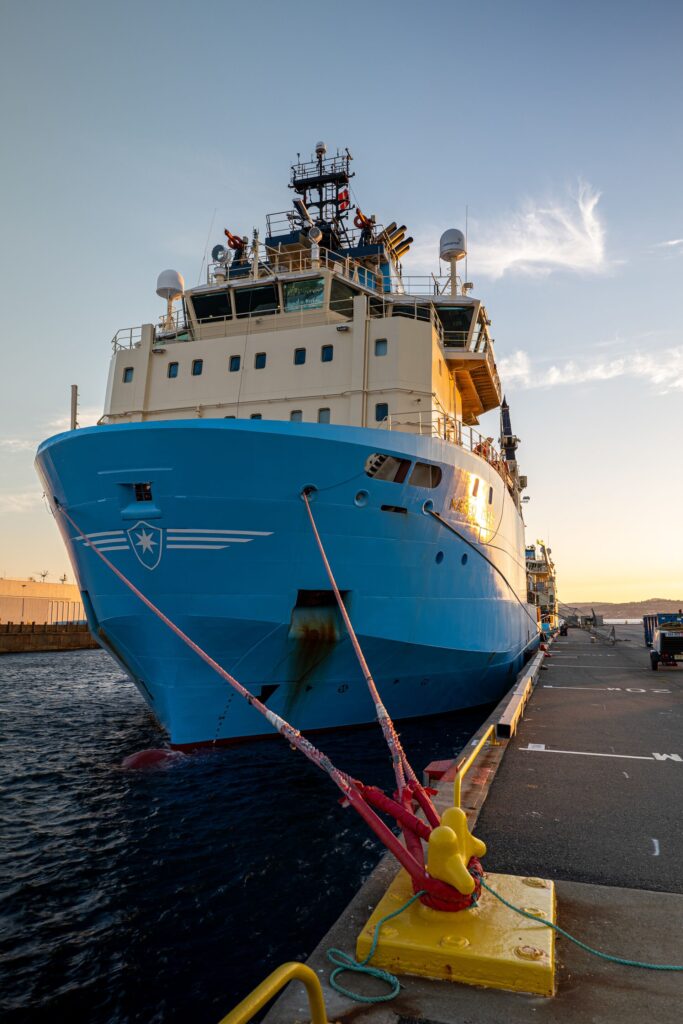
Frequency Drives
First, the ship was retrofitted with frequency drives for each of its four thrusters. This allows one or all of the thrusters to be selected and available for use without consuming any power, unless demanded by the operator on the bridge. This can lead to significant energy savings, as the thrusters do not turn and thereby consume power unless needed. This is particularly the case when the vessel is in Dynamic Positioning (DP) mode, as the thrusters only operate when commanded by the DP system – and then only up to the power required, rather than turning continuously at full RPM without a frequency drive.
All engine room fans were also fitted with frequency drives, another key component in ensuring fuel-efficient consumption.
RPM Reduction
While in combinator mode, which is used for steaming, the main engines’ RPM can be reduced, along with the frequency of the shaft generators. The vessel has also been fitted with the latest cutting-edge fuel flow meters, which live-track all fuel consumption.
Promising results
From the outset, the data coming back from the testing phase looked promising. The results from this trial could well now pave the way for similar upgrades to be carried out on more of Maersk Supply Service’s T-Class vessels.
“Overall, it is a substantial investment that we have placed in these energy upgrades, and our Technical Organisation has done a stellar job in advancing these initiatives. As a responsible company, we need to do what we can to reduce our emissions whilst also remaining attractive for our customers,” says Chris Tibbo.
The Green Transition: Decarbonisation
Maersk Supply Service has set the ambitious targets of reducing the carbon intensity of its fleet by 50% by 2030 and being entirely carbon neutral by 2050. With 2018 as the baseline, they have already seen a 13% reduction through a concerted effort to improve energy efficiency.
“Saving fuel and operating the vessels in a more energy efficient way both play a huge part in our sustainability journey, but they cannot do it alone. This is why we have introduced the Green Transition Decarbonisation Initiatives,” says Allan Henning Rasmussen, Head of Technical Organisation at Maersk Supply Service.
These Decarbonisation Initiatives cover a range of elements, including:
- Energy efficiency
- Low/zero carbon fuels
- Fleet composition
- Technical upgrades using known technology
- Innovation and new technology
